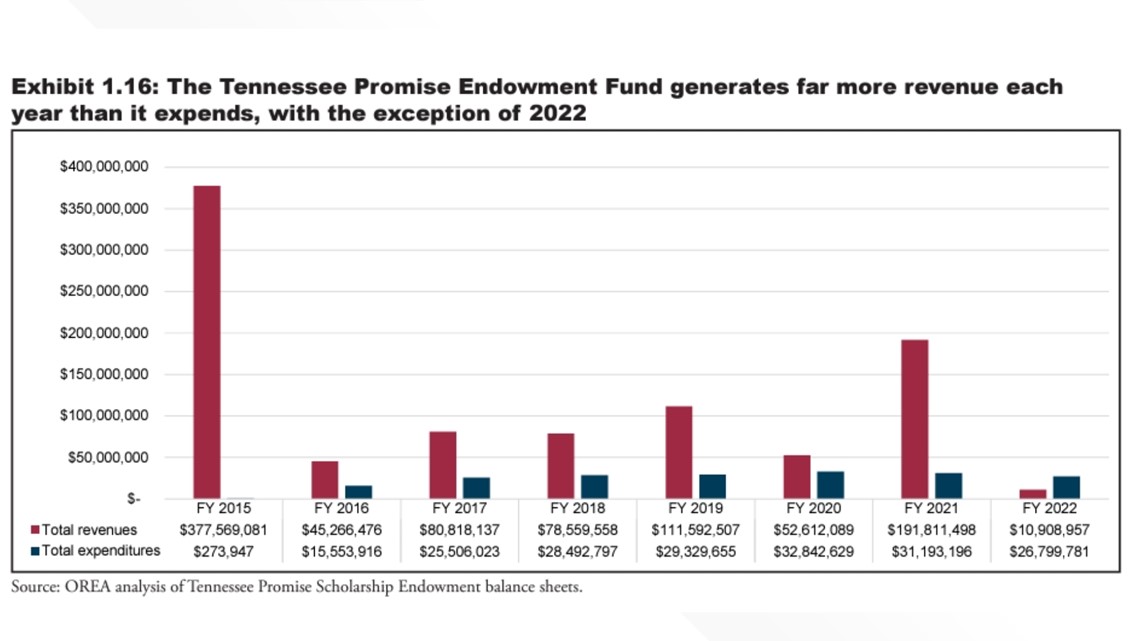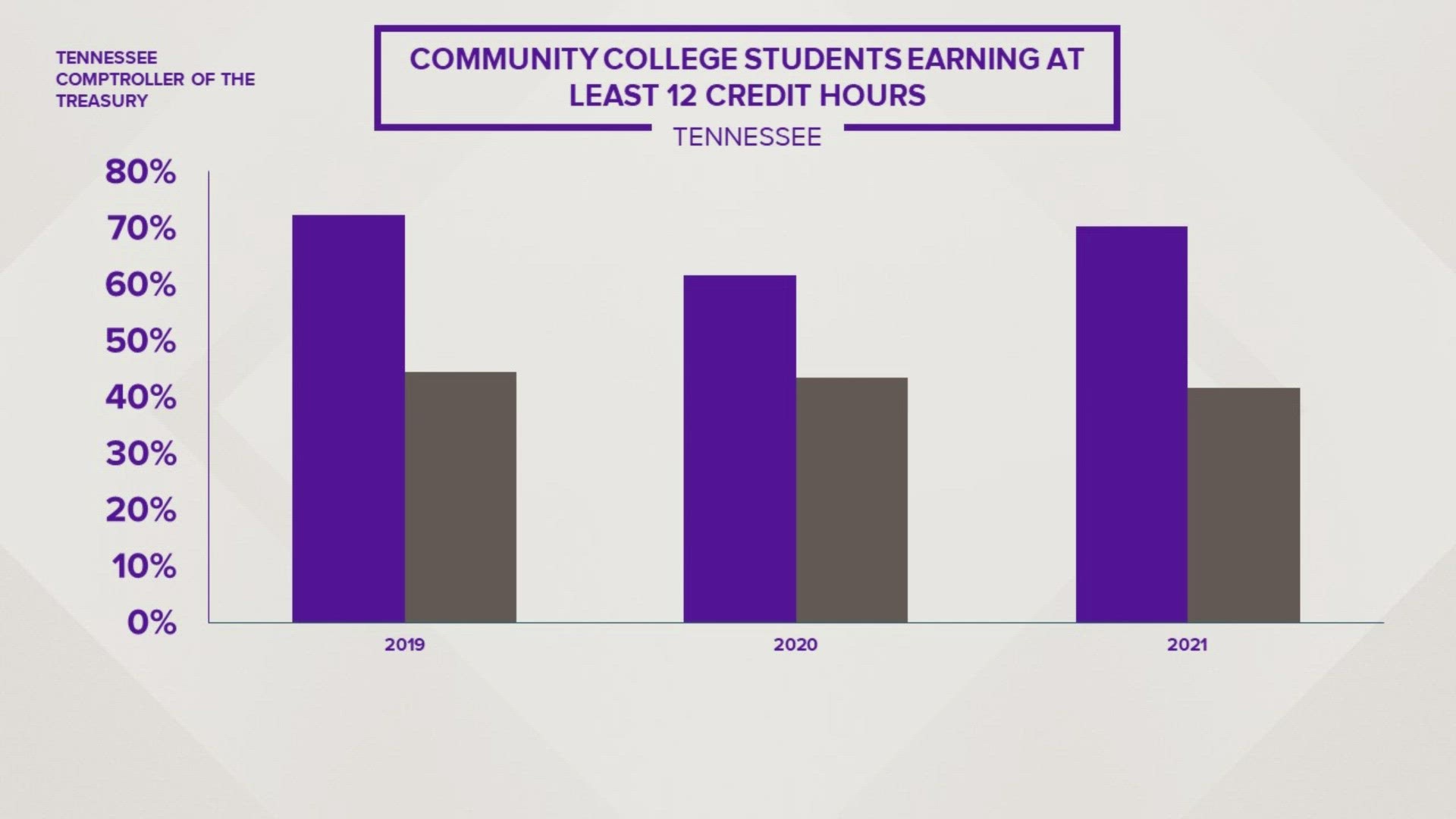NASHVILLE, Tenn. — The Tennessee Comptroller's Office is required to evaluate the Tennessee Promise scholarship program periodically. In its most recent report released in January, the office found students participating in the program tended to get more credits compared to students not eligible for the program who attend the same school.
The program is a last-dollar scholarship that pays for students' tuition and mandatory fees after other kinds of financial aid are applied. It does not cover textbooks, supplies, tools, lab fees or other program-specific fees. The program is designed to help graduating high school students attain an associate degree, credential or diploma without worrying about the cost.
According to the Comptroller's Office, a Promise student at a community college usually pays at least $1,000 per year in out-of-pocket expenses, but students at Tennessee Colleges of Applied Technology tend to pay up to $3,100 per year.


The Comptroller's Office also found that students participating in the program tended to earn more credits and be retained for longer compared to students at the same school who weren't eligible for the program. It also found they tended to earn awards at higher rates.
"The most common reason applicants are not eligible for Promise is a failure to meet the initial community service deadline," the Comptroller's Office said in its report. "While the Promise program is effective overall, enrollment, retention, and attainment gaps exist among students."
It noted differences in participation rates between racial groups. The report said Black students in eligible institutions are less likely to enroll as Promise students than white peers. It said of all students who apply for the program and enroll in an eligible institution, around 75.9% are white and around 14.4% are Black.
"Narrowing the racial gaps between application and enrollment, as well as throughout retention and credential attainment, would increase Tennessee’s overall attainment rate and produce a more competitive workforce," the report said.
It also said most Promise students at community colleges do not complete degree programs within the program's five-semester limit, especially among nursing students. The report also said around a quarter of high school students who apply for the Promise scholarship successfully enroll at an eligible institution. Around three-quarters do not.
The Tennessee Promise only applies to specific programs and schools. They are mostly trade schools, community colleges or colleges with two-year programs.
The report also noted that work and family responsibilities are major reasons why students may lose eligibility for the Tennessee Promise. Students need to be enrolled full-time and have a GPA of at least 2.0. Around 75% of students surveyed said work pressures contributed to their GPA slipping, and around 82% said work pressures caused them to stop attending school full-time.
"In interviews, postsecondary employees indicated that students struggle to balance school with work and family responsibilities," the report said.
The report encouraged leaders to combine the Promise program and college applications, making the application process more efficient. It also encouraged the General Assembly to expand the program or guarantee a minimum payout to help students cover the overall cost of school.
The report also recommended eliminating the initial community service requirement to increase the number of applicants, since it was the cause of most students losing eligibility. It also said lawmakers could adjust the full-time enrollment requirement to better accommodate students who also work, or who have family responsibilities.

